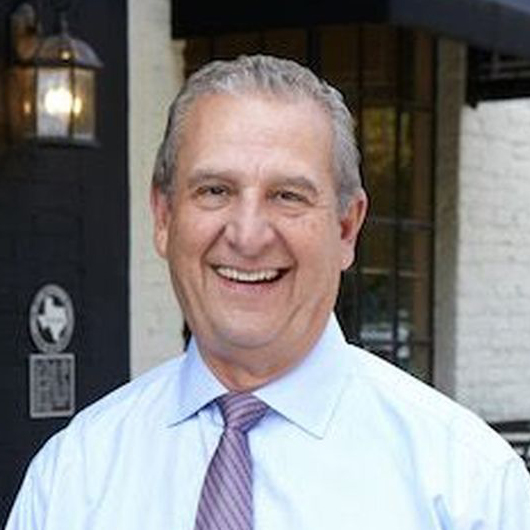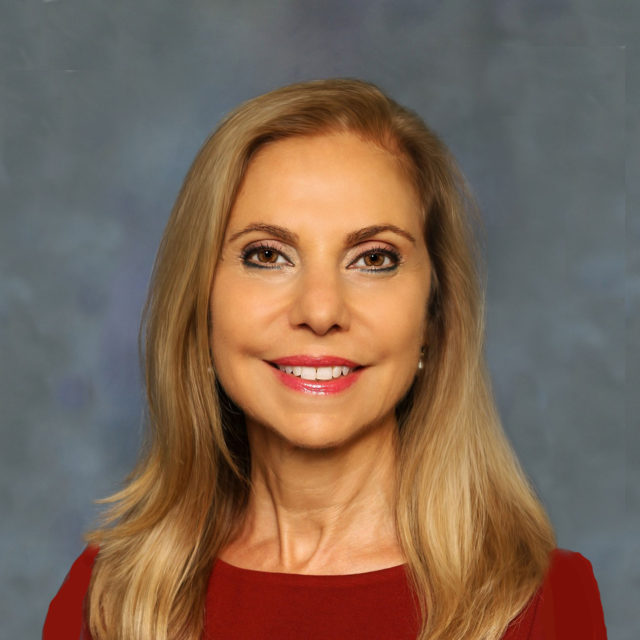PART 8 OF A 10-PART SERIES
Encouraging Dry Eye Disease Follow-Up Visits
In this, Part 8 of our series, Real-World Answers From Experts in Dry Eye Disease, Dr. Jerry Robben asks the experts in Dry Eye Disease for their best practices in terms of educating patients on the importance of follow-up visits.
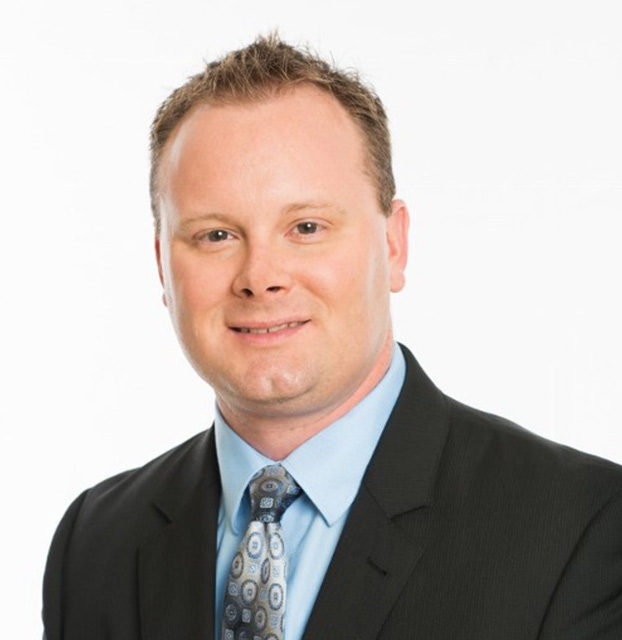
Jerry Robben, OD
Jerry Robben, OD
Bowden Eye & Associates
Jacksonville, Florida
Dr. Robben is the Chief Optometric Physician at Bowden Eye & Associates. He is also an Adjunct Assistant Professor at Arizona College of Optometry. He is a Founding Partner of Dry Eye University and a Founding Member and contributor of Dry Eye Access. He attended graduate school at Nova Southeastern University in Fort Lauderdale, Florida, where he received a second bachelor’s degree in Vision Science and his Doctorate in Optometry. During his externships, Dr. Robben had extensive training in binocular vision disorders and vision therapy. He also focused on pediatric care, contact lenses, low vision, and ocular disease. With a background in clinical education, Dr. Robben started a student doctor externship program, and is also an Adjunct Clinical Assistant Professor for the Arizona College of Optometry where he supervises the 4th Year Optometry Resident Doctors who are completing their externships for graduation. Dr. Robben is a leader in the treatment and management of Dry Eye Disease and has been recognized as a national speaker and educator on the subject. He frequently speaks in educational settings for optometrists, technicians and ophthalmologists across the country.
Chronic, progressive conditions, such as Dry Eye Disease, pose special challenges in patient compliance.
Moderated by Dr. Jerry Robben
In Part 7: Discussions Around Neurostimulation Treatments, we learned that a personal demonstration of novel treatments can increase patient interest. Effectiveness of care demands not only careful compliance with the clinician’s instructions, but also making sure he or she visits the practice as scheduled. It is in these initial follow-up visits where the effectiveness of care is evaluated and adjustments are made to ensure the course of care is working as planned. Unfortunately, once they start to feel better, many patients choose to skip those initial follow-up visits.
I approach the follow-up visit conversation in a similar way that I engage a glaucoma patient. I try to have the same conviction in the conversations as I indicate the need for testing and short follow-up. I also set longer-term expectations that the need to continue to follow and to have repeat testing is likely, but as we gain better control, less frequent visits may be possible.
How do you encourage patient compliance with follow-up visits?
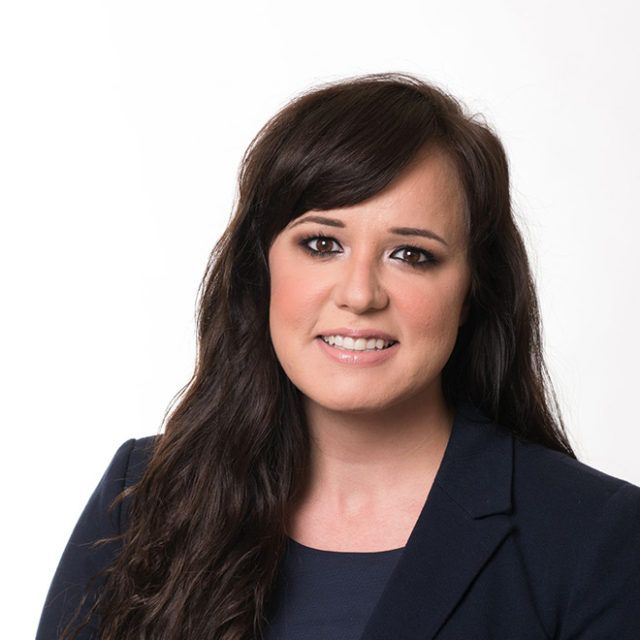
Sarah Darbandi, MD
Sarah Darbandi, MD
Bowden Eye & Associates
Jacksonville, FL
Dr. Sarah Darbandi is a fellowship trained cornea specialist. She is the Vice-President, Owner and Director of Aesthetic services for Bowden Eye & Associates. She is also a Founding Partner of Dry Eye University and a Founding Member, Advisory Board and Contributor of Dry Eye Access.
She attended Medical School at West Virginia University, then went on to residency in Ophthalmology at the West Virginia University Eye Institute. With her interest in corneal transplantation and refractive surgerySurgical procedures that correct common vision problems (nearsightedness, farsightedness, astigmatism and presbyopia) to reduce dependence on prescription eyeglasses and/or contact lenses., she then completed a fellowship in Albany, New York, in Cornea and Refractive SurgerySurgical procedures that correct common vision problems (nearsightedness, farsightedness, astigmatism and presbyopia) to reduce dependence on prescription eyeglasses and/or contact lenses.. In 2015, she became partner and Vice President of Bowden Eye & Associates. Dr. Darbandi provides general ophthalmic care, custom cataract surgery, corneal transplantation, ocular surface reconstruction, and refractive surgery.
I discuss that the biochemistry of the tear filmThe outer layer is an oil- or lipid-based layer, which helps reduce evaporation of the natural tears. can change without them having symptoms, so it’ll be important to identify these changes early. I emphasize the importance of obtaining metrics at the earliest possible appointment to monitor their condition.
In early phases of treatment, I always state that there is no cure for Dry Eye Disease, just constant management, which may require you to have several follow-up visits. I feel that setting the tone early on makes patient cooperation and compliance easier.
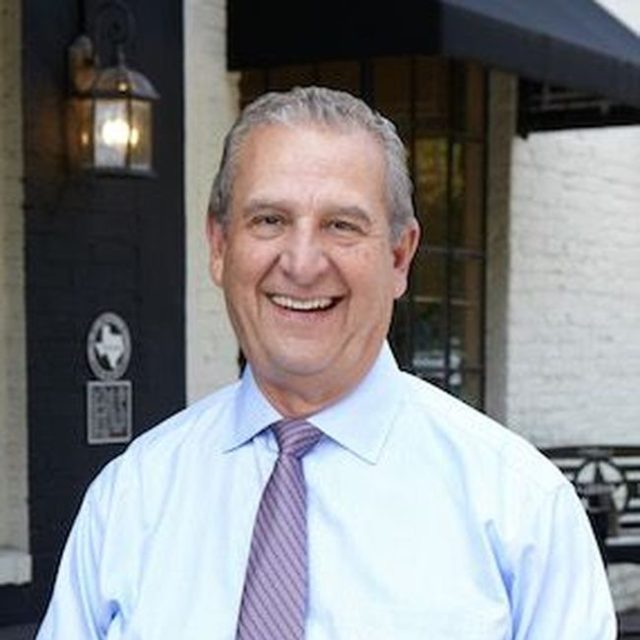
Art Medina, OD
Art Medina, OD
Medina Eye Care
San Antonio, Texas
Dr. Arthur A. Medina Jr. was born and raised in San Antonio, Texas and attended Central Catholic High School. He received his doctorate of optometry in 1972. The University of Houston, College of Optometry, appointed him to the faculty.
Medina continued his postdoctoral training with Dr. Louis Girard, M.D, who chaired the department of ophthalmology at Baylor College of Medicine. That experience enhanced the philosophy that still serves as the foundation for his practice.
Dr. Medina opened his private practice in 1983, after a decade as an associate of two prestigious ophthalmological practices. His experience with pre and post-operative care of cataract and refractive surgerySurgical procedures that correct common vision problems (nearsightedness, farsightedness, astigmatism and presbyopia) to reduce dependence on prescription eyeglasses and/or contact lenses. patients led to working relationships with leading ophthalmic surgeons throughout Texas and the western United States. His incredible passion for the profession and quality patient care led to unique relationships with renowned, like-minded national and international physicians.
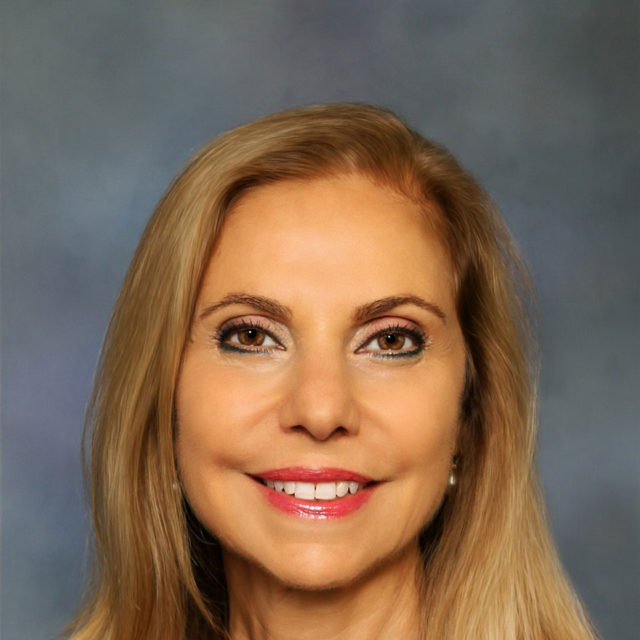
Cynthia Matossian, MD, FACS, ABES
Cynthia Matossian, MD, FACS, ABES
Matossian Eye Associates
New Jersey and Pennsylvania
Cynthia Matossian, MD, FACS, is the founder, CEO, and medical director of Matossian Eye Associates with multiple offices in PA and NJ. She specializes in refractive cataract surgery and dry eye disease. She was named one of Ocular Surgery News’ Premier Surgeon 300—an elite group of 300 premium refractive cataract surgeons in the US. She was the 2017 winner of the Ophthalmic World Leaders Visionary Award. She has been named one of the Top 25 Leading Women Entrepreneurs in New Jersey and one of New Jersey and Pennsylvania’s Best 50 Women in Business. She is a Clinical Assistant Professor of Ophthalmology (Adjunct) at Temple University School of Medicine. Contact Info: cmatossian@matossianeye.com.
I say, like any disease, we need to see if the treatments we are recommending are working—if not, we may have to adjust the protocol.
I explain that I need to lay a foundation before I can build a house. It’s a process with tons of experience to support it. The most skeptical are the 18- to 28-year-olds with no prior medical issues.
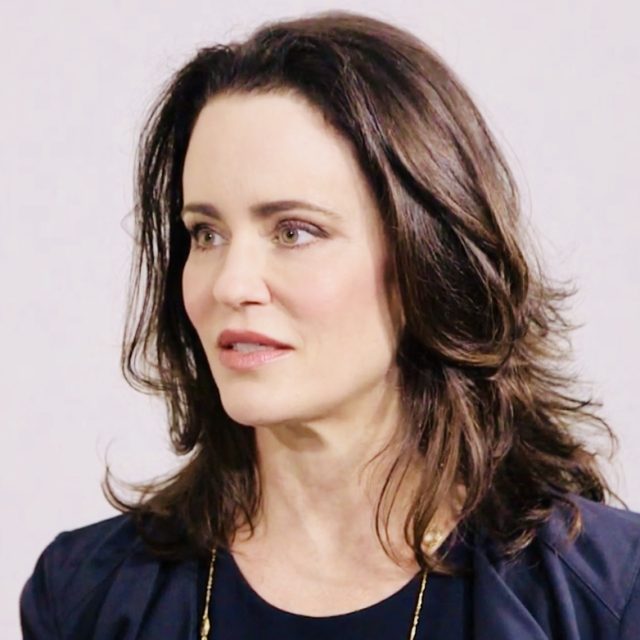
Laura M. Periman, MD
Laura M. Periman, MD
Evergreen Eye Center
Seattle, Washington
Laura Periman, MD is a board-certified ophthalmologist, fellowship-trained cornea and refractive surgeon and Ocular Surface DiseaseA number of conditions constitute ocular surface disease, including: Dry Eye syndrome, Meibomian Gland Dysfunction, blepharitis, rosacea, allergies, scarring from glaucoma medications, chemical burns,… Expert. She knew she wanted to be a doctor since the age of 12 and always seen eyes as the key defining feature of every person. Her interests in molecular biology began with winning the Terry Spies Memorial Scholarship at the Oregon Regional Primate Research Center as an undergraduate at Willamette University in Salem, OR.
Her interests in immunopathophysiology took root during her work in Research and Development at Immunex Corporation in the Molecular Biology Department prior to attending medical school at the University of Washington in Seattle, WA. During medical school, she received the Rex and Arlene Garrison Oncology Fellowship, the Western Medical Student Research Committee Award for Excellence and was elected to the honor society, Alpha Omega Alpha. Upon graduation with honors, she also received the Georgianna Kirby Award for outstanding patient dedication and compassion.
Dr. Periman completed her Ophthalmology Residency as well as Cornea/Refractive Fellowship at the University of Washington in Seattle. She is an international lecturer on Ocular Surface DiseaseA number of conditions constitute ocular surface disease, including: Dry Eye syndrome, Meibomian Gland Dysfunction, blepharitis, rosacea, allergies, scarring from glaucoma medications, chemical burns,.... She has nine peer reviewed publications, two chapters, a review article and independent study in press, and has written extensively on the topic of Ocular Surface Disease. Her unique and passionate perspective on OSD stems from her work in immunopathophysiology. She is an innovator and enthusiastic speaker who loves bridging the gap between basic science, clinical practice and patient compassion.
As Director of Dry Eye Services and Clinical Research at Evergreen Eye Center Seattle, WA she combines her clinical care passion, scientific drive and innovative creativity to provide first class Ocular Surface Disease management.
For more information on Dr. Periman, please visit her website www.dryeyemaster.com.
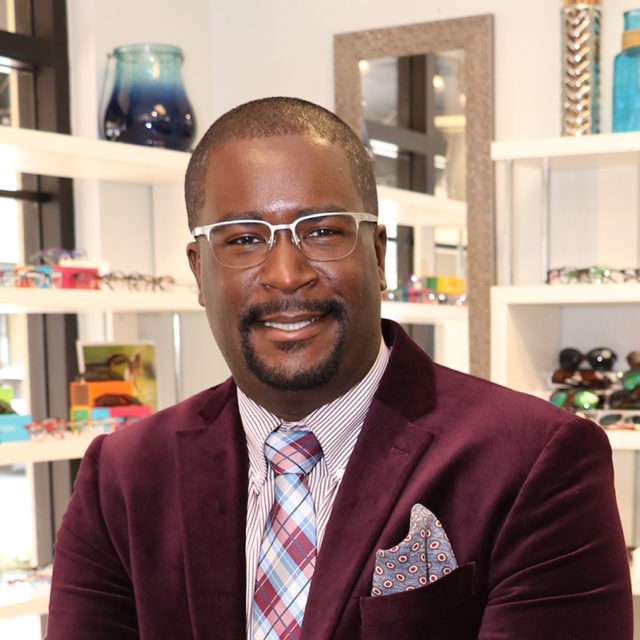
Adam Ramsey, OD
Adam Ramsey, OD
Iconic Eye Care
Palm Beach Gardens, Florida
Adam Ramsey, OD serves as the Medical Director of Iconic Eye Care in Palm Beach Gardens FL. Dr. Ramsey’s practice encompasses ocular surface diseaseA number of conditions constitute ocular surface disease, including: Dry Eye syndrome, Meibomian Gland Dysfunction, blepharitis, rosacea, allergies, scarring from glaucoma medications, chemical burns,…, glaucoma, surgical co-management, macular degeneration care and diabetic eye exams. Dr. Ramsey is the current President of the Palm Beach County Optometric Association and is also the Vice-President of T. Leroy Jefferson Medical Society an affiliate of National Medical Association. He also serves as the Chief Optometric officer for Seminole Health Indian Reservation for the state of Florida servicing 3 locations.
We explain that each test and treatment we do will require close monitoring for effectiveness. The great thing about this is that some of these treatments show results in a short period of time, and I will be able to bring you back quickly to test their effectiveness.
Advise the patient that close follow-up is warranted in some cases, as symptoms cannot be relied upon to guide prescribed treatments alone. If steroids are used, advise of risks. If expensive treatments are done, the need to validate efficacy to confront buyer’s remorse is also needed.
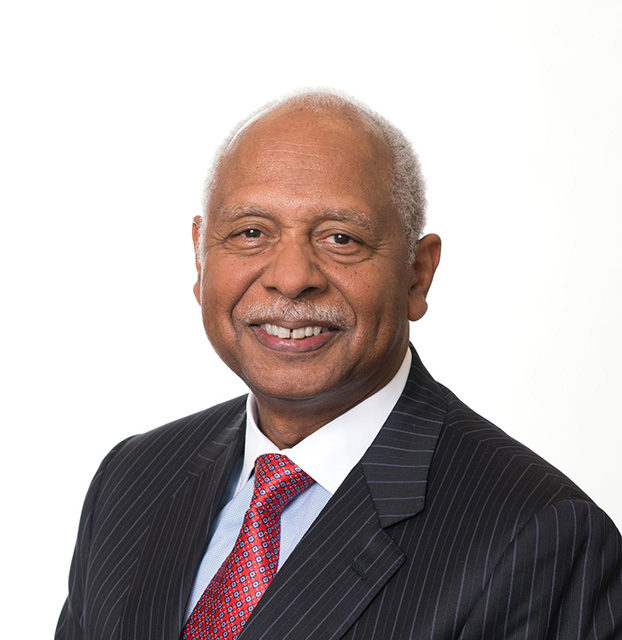
Frank W. Bowden, III, MD, FACS
Frank W. Bowden, III, MD, FACS
Bowden Eye & Associates
Jacksonville, FL
Dr. Frank W. Bowden, III, had his fellowship as a cornea specialist at Wills Eye. He is President, Medical Director and Founder of Bowden Eye & Associates, President and Medical Director of Eye Surgery Center of North Florida, LLC. He is also a Founding Partner of Dry Eye University and a Founding Member, Advisory Board and Contributor of Dry Eye Access. Previously, he was an Assistant Clinical Professor at University of Florida, Jacksonville.
Dr. Frank W. Bowden, III, founded Bowden Eye & Associates in 2001, focusing the practice on comprehensive eye care; custom cataract surgery; refractive and LASIK surgery; glaucoma surgery and laser therapy; treatment of Dry Eye Disease and other ocular surface disorders; corneal transplantation; and corneal and external diseases. As a fellowship-trained cornea specialist, he is uniquely qualified to treat Dry Eye Disease; corneal abrasions, inflammations, ulcers, scarring, injuries and infections; keratoconus; as well as pediatric corneal diseases. He also specializes in corneal transplantation using advanced techniques such as PKP, DSAEK, and DALK.
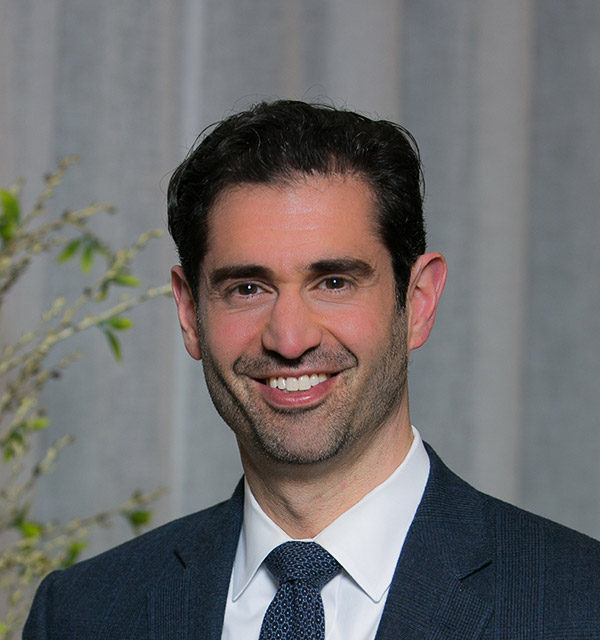
Richard Adler, MD, FACS
Richard Adler, MD, FACS
Belcara Health
Baltimore, Maryland
Dr. Richard Adler is an Assistant Professor of Ophthalmology at the Wilmer Eye Institute and Director of Ophthalmology at Belcara Health in Baltimore, Maryland. Dr. Adler completed his medical training and residency at Johns Hopkins as well as a fellowship in Cornea and External Disease at the Wilmer Eye Institute. Dr. Adler has published numerous papers and speaks nationally on topics related to the unique challenges of Dry Eye Management.
This is rarely an issue for me. As docs, we need to recognize that we are not in the business of negotiating care. As such, I inform the patient when I need to see him/her. It’s not a discussion! If they choose to not return, I accept their choice.
No matter the ocular condition, anytime I treat, I always schedule a follow-up. Initially, I will see them anywhere from 4-6 weeks after starting drops or offering procedures, which allows us to see efficacy of treatment, improvement of symptoms, and modify or add treatments if necessary. I let them know during the initial treatment that I will be following up with them more closely initially, and as they start improving, I will see the patient at 4- to 6-month intervals. At each subsequent visit, I always order SPEED and tear osmolarity. I will order MMP-9 as necessary. I review their symptom scores and tear osmolarity numbers, as this will help me determine what the next steps will be. Setting expectations is important. Symptoms are the easier ones to explain; however, in cases of significant MG loss, I let them know that our goals are to optimize the MG and help them improve function and quality of secretions of remaining glands and to make sure they don’t get worse.
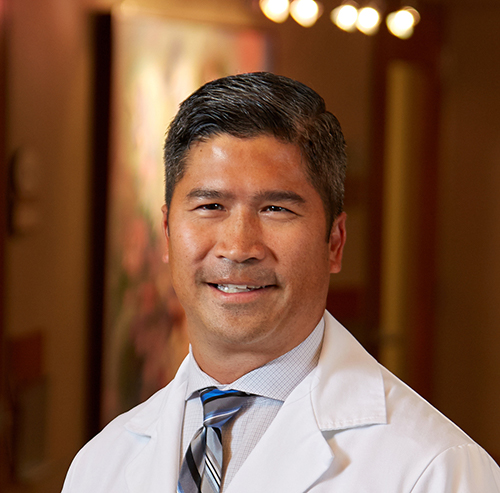
Walter Whitley, OD, MBA, FAAO
Walter Whitley, OD, MBA, FAAO
Virginia Eye Consultants
Norfolk, Virginia
Walter Whitley, OD, MBA, FAAO serves as the Director of Optometric Services and Residency Program Supervisor at Virginia Eye Consultants in Norfolk, Virginia where his practice encompasses ocular surface diseaseA number of conditions constitute ocular surface disease, including: Dry Eye syndrome, Meibomian Gland Dysfunction, blepharitis, rosacea, allergies, scarring from glaucoma medications, chemical burns,…, glaucoma, surgical co-management, clinical research and the supervision of an extensive referral network. Dr. Whitley is a nationally recognized author and lecturer on topics ranging from ocular disease, surgical co-management, pharmaceuticals and practice management topics. He serves as Co-Chief Medical Editor for CollaborativeEYE and contributing editor for the Review of Optometry.
Dry Eye Disease, like glaucoma and other chronic, progressive eye diseases, requires constant communication, multiple follow-ups, and a long-term view of care. Helping patients understand this need for consistency is a responsibility of every person in the practice. Our experts agree that setting realistic expectations about the patient’s role in treatment success is an important conversation to have with every patient.

